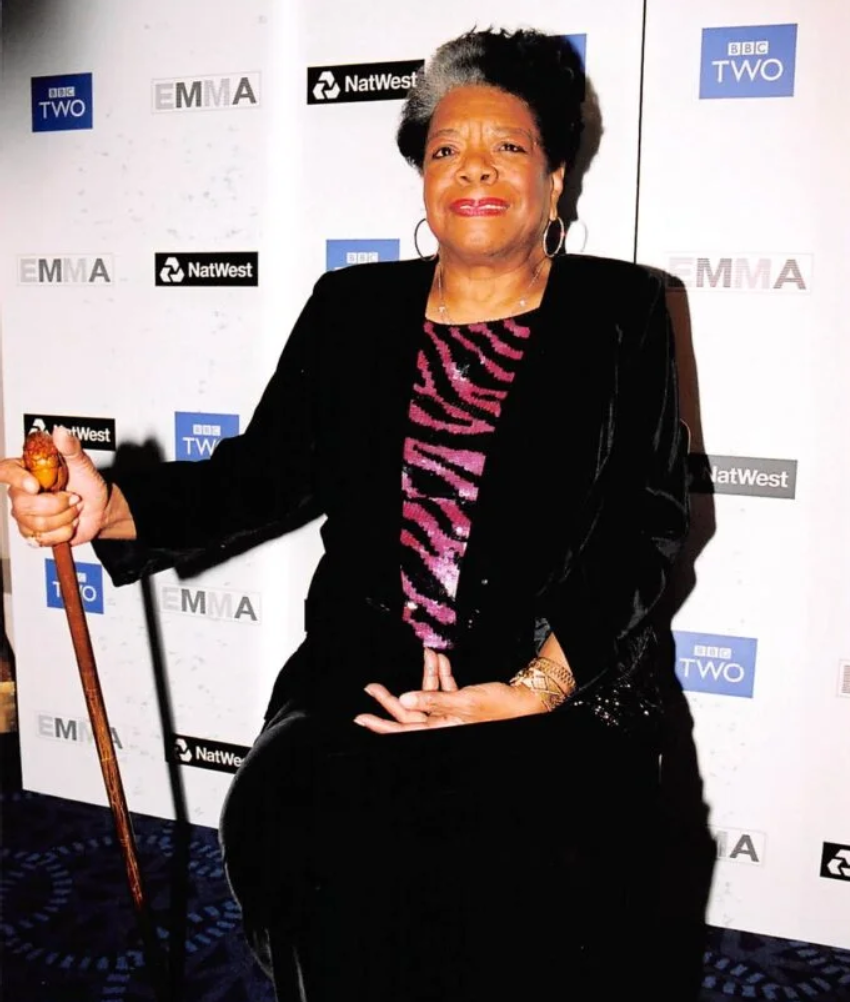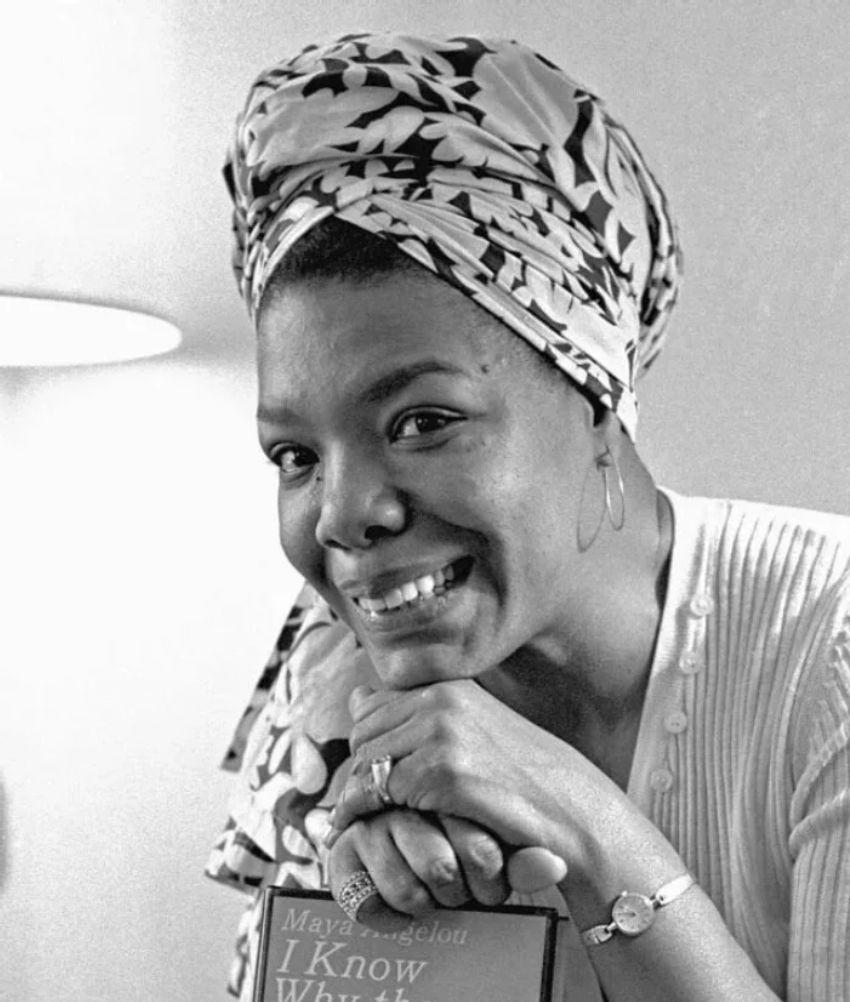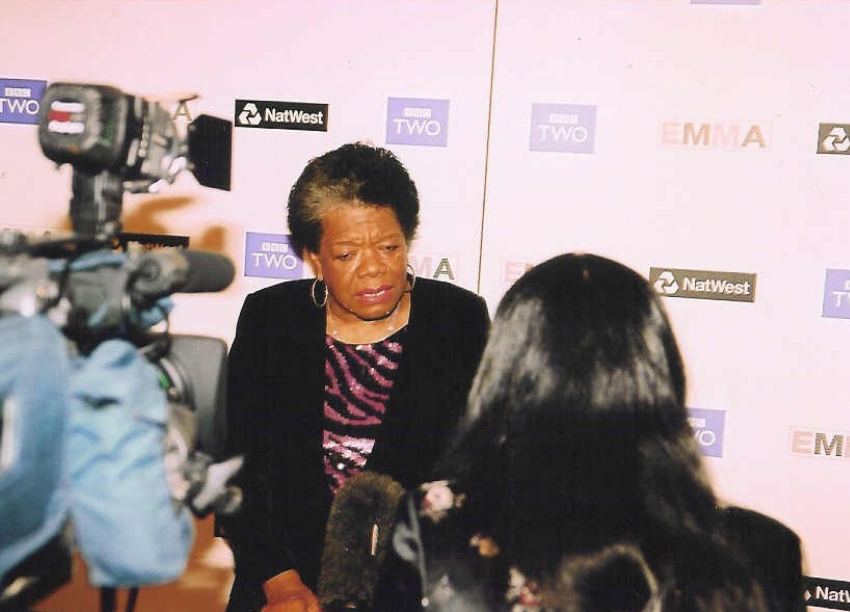Maya Angelou



Since winning the EMMA Award (Lifetime Achievement)
Dr. Maya Angelou is an Afro-American memoirist, poet, writer and civil rights activist who went on to publish the cookbooks “Hallelujah! The Welcome Table: A Lifetime of Memories With Recipes” and Great Food, All Day Long”.
One of her autobiographical works, A Song Flung Up to Heaven, was published in 2002 and explores her return from Africa to the United States as well as her struggle to cope with the devastating assassinations of two human rights leaders, Malcolm X and Martin Luther King Jr, both of whom she worked with.
In 2010, President Barack Obama awarded Angelou the Presidential Medal of Freedom, the country’s highest civilian honor.
In 2012, she was among the inaugural class inducted into the Wake Forest University Writers Hall of Fame.
In 2013, she received the National Book Foundation’s Literarian Award for outstanding service to the American literary community.
After experiencing health issues for several years, Maya passed away on 28 May 2014 at her home in Winston-Salem, North Carolina, at the age of 86.
Maya Angelou’s work has improved society, bringing greater diversity into the theater and literature, especially regarding issues of race, gender, and trauma.
Dr. Maya Angelou’s autobiographical works provide powerful insights into the evolution of Afro-American women in the 20th century.
Background (Before 2002)
Maya Angelou was born Marguerite Annie Johnson. Her passion for the written word and the English language was evident from an early age as she took an interest in poetry and memorised works by Shakespeare and Poe.
Maya’s father was a doorman and navy dietitian; her mother was a nurse and card dealer.
Prior to the start of World War II, Maya lived with her mother in Oakland, California. She attended George Washington High School and took dance and drama courses at the California Labor School.
When the war broke out, Maya applied to join the Women’s Army Corps. However, her application was rejected because of her involvement in the California Labor School, which was said to have Communist ties.
Maya was determined to gain employment. She decided to apply for the position of streetcar conductor but was barred from applying at first because of her race. Eventually, the company relented and handed her an application. Because she was 15 at the time and under the legal working age, she wrote that she was 19. Maya was accepted for the position and became the first African American woman to work as a streetcar conductor in San Francisco.
Maya was employed for a semester before deciding to return to school. In 1959, Maya joined the Harlem Writers Guild, became active in the Civil Rights Movement and served as the northern coordinator of the Southern Christian Leadership Conference.
In 1969, she published “I Know Why the Caged Bird Sings”, an autobiography of her early life. It was nominated for the National Book Award and many schools sought to ban the book for its frank depiction of sexual abuse. Still, it is often credited with helping other abuse survivors tell their stories.
Maya eventually published six more autobiographies and wrote numerous poetry volumes, including the Pulitzer Prize-nominated “Just Give me a Cool Drink of Water ‘fore I Diiie”, and several essay collections.
In 1972, she became the first African American woman to have her screenplay turned into a film with the production “Georgia, Georgia.”
Maya earned a Tony nomination in 1973 for her supporting role in Jerome Kitty’s play Look Away. In 1977, she portrayed Kunta Kinte’s grandmother in the television miniseries Roots.
Maya recorded spoken albums of her poetry, including “On the Pulse of the Morning,” for which she won a Grammy for Best Spoken Word Album in 1995 and again in 2002.
Many organisations recognised her for her contributions to literature. In 1981, Wake Forest University offered Maya Angelou the Reynolds Professorship of American Studies.
In 2000, President Clinton awarded Dr. Maya Angelou the National Medal of Arts.


































